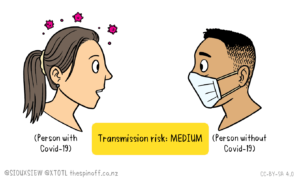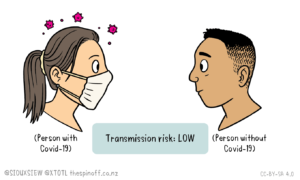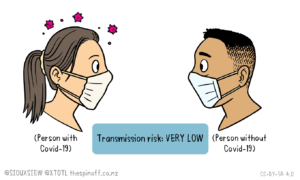There’s a new study from Denmark that, if you don’t read carefully, looks like it has found evidence that masks don’t work to stop Covid. You’ll probably be hearing about it. [Update: on Newshub now] Here’s the NYTimes take.
The study randomly allocated 5000 people to wear masks or not, and found 42 people with antibodies to the Covid virus in the mask group and 53 in the no-mask group. From the abstract, the researcher concluded
The recommendation to wear surgical masks to supplement other public health measures did not reduce the SARS-CoV-2 infection rate among wearers by more than 50% in a community with modest infection rates, some degree of social distancing, and uncommon general mask use.
The results for actual diagnosed infection were a bit better: 5 vs 10.
Let’s look at the ‘limitations’ reported in the abstract
Inconclusive results, missing data, variable adherence, patient-reported findings on home tests, no blinding, and no assessment of whether masks could decrease disease transmission from mask wearers to others. [emphasis added]
So, based on a study that was too small, they argue that a mask doesn’t reduce your personal chance of being infected by more than half, and they didn’t look at whether it reduces your risk of infecting other people.
In NZ, our mask advice (and, from today, rules) is based on the benefits both ways, but more on reducing your risk to other people. Here’s the message from Toby Morris and Siouxsie Wiles

and

and

It’s hard to get rigorous evaluations of the benefits of masks. Most of the evidence we have comes from theory (it stops droplets, so it should reduce infection), from individual examples (eg two hair stylists who didn’t infect any of their clients), and from comparisons of trends between countries, states, and counties with different polices.
There are good reasons to believe masks reduce risk. It would be nice to have the sort of evidence we have for the new vaccines, but that’s not going to happen — and at least masks are safe and only slightly annoying.



